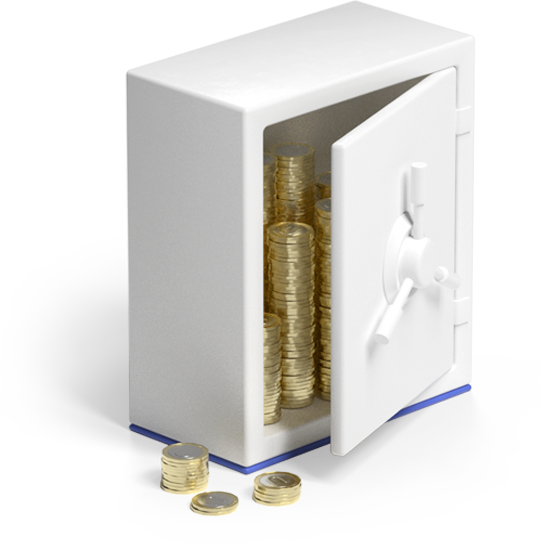Why Property Is A Great Investment During Times Of Inflation
With inflation on the rise and hitting 40-year highs. We look at why property is a good way to protect your wealth.
By Jon Howe9/13/22

The UK is currently enduring its highest inflation hike in 40 years and people are navigating the cost of living crisis by cutting out non-essential expenditure. You might think this would lead to people putting property investment plans on hold, but that isn’t necessarily the right thing to do. In contrast, in times of high inflation, property is actually one of the commodities that ‘could’ ride out the storm and provide an inflation-busting investment return.
Whatever your attitude to risk, the first rule of property investment is to take a long-term view. And as an investor you need to build a balance of investments into your portfolio so that the level of overall risk is reduced, or at least more controlled. This is known as ‘diversifying’ your investments and essentially means that you can afford an investment which includes an element of risk, as long as your portfolio includes other investments which are much safer and effectively protect you. This combination of having a long-term strategy and a diverse investment portfolio is the basis behind why a property investment in times of high inflation can be a good idea.
How does inflation affect house prices?
On the face of it there is little correlation between inflation and fluctuations in house prices. After all, inflation is linked to consumer spending, while house prices are affected by demographic trends, the economy and the construction industry (supply). But historically there has always been a clear pattern of house prices increasing when inflation is high, albeit the increase in house prices is usually outstripped by inflation by 2 or 3%.
Furthermore, wages and interest rates often correlate with house price trends. Inflation rising will push up wages, which creates a bigger budget for renting or buying property, which in turn creates demand, and if interest rates are low this also stirs up the property market and triggers a lot more activity. It could be said that this is something of a perfect storm, and while you might not say this is the ideal time for investors to go all-in on property, it is not as risky as you might think.
Another way that inflation can affect house prices is in material costs. Construction materials – particularly timber - have increased dramatically over the last two years, and builders will pass this cost on to the buyer/investor, so new-build housing has increased in price, and property renovations are also less profitable in the short term. But as we always say, a good investor needs to look to the long term.
Understanding the current property market
Typically, an investor is always on the look-out for a safe haven to help balance and protect their investment portfolio. And even if you are not a professional investor, you are looking for a sensible way to invest your savings. Historically, property has always represented a steadier, more moderate investment, particularly if you carry out thorough research and are patient to wait for the right opportunity. Property is only an unattractive investment if a better opportunity exists elsewhere, and this is where your individual circumstances and your attitude to risk comes into the equation. Stocks and shares can be more lucrative but are also more volatile and harder to predict, and whether they are inflation-busting is a discussion many part-time investors aren’t qualified to have.
Currently there is a housing shortage in the UK, and a high demand for properties to both purchase and rent. This lack of supply means that a landlord should always have a steady stream of tenants and an investor should always have a lively market of potential buyers for a property, albeit this is a rather short-term view. So inflation might affect the immediate profitability of an investment – because of material and renovation costs – but the ongoing demand should also mean that house prices will continue to rise, and the appeal of the property market is not likely to be dimmed by the current inflation hikes.
The rise in house prices in the UK is more moderate when compared to what we have seen in everyday costs such as food, petrol and utilities, and most experts are commenting that while people are saving on non-essential items such as travel, clothes and entertainment, housing investment is not viewed with the same level of caution. And of course, another thing we see with a low supply of houses, and particularly when mortgage rates are threatening to rise as they are now, is a bidding war for properties, which can be good news for a property owner looking to maximise the return on their investment in what is now a seller’s market.
Why property remains a good investment when inflation is high
According to the Office of National Statistics, inflation rose 9.1% in the UK in May 2022, the highest rise seen since 1982. In the year ending December 2021, average house prices rose 10.8%. Mortgage rates are currently at a historic low, although experts predict them to start rising soon. This means if you can lock-in a fixed rate mortgage now, it would be very beneficial to do so.
But the more telling reasons why property remains a good investment in times of high inflation are the more traditional factors. Property is a good alternative to investing in stocks and shares because it is more predictable and there are fewer influencing factors. As a matter of course, property investors are very aware of the dangers and risks of investing at the wrong time and know all the tell-tale signs. These usually come from researching local markets, and as we know, property prices are a very localised issue and can vary quite significantly between a big city and a more rural area, for example. But even in a period of high inflation, you can find higher property prices in an area where there is a high concentration of job opportunities, so if you research the right area you can invest in property where inflation is high and unemployment is low – the ideal scenario - and you should always find rental demand or a market of willing property buyers.
It is also worth noting that rental costs increase during high inflation just like any other cost, and potential tenants won’t be surprised by this. So this will help landlords and property investors ride out the increases in maintenance costs or renovation work, and while inflation might have a negative impact on short-term profitability as a result, the long-term strategy of the property investor is the key.
Should I invest in property during a period of high inflation?
Like any kind of investment, this depends entirely on your individual circumstances and your attitude to risk. But it is important to note that the risk factor of investing in property during a period of high inflation does not necessarily increase, or at least any inherent risk that exists comes from the same factors you should be considering anyway, i.e. location, property condition, renovation costs etc. In other words, the ‘marketability’ of a property is not really affected by inflation, and a good property investment opportunity remains a good property investment opportunity regardless.
It is true that attempting to ‘flip’ a property during a period of high inflation may be more difficult, i.e. buying a property and selling it for a profit quickly. This is because if you are attempting to increase the value by renovating the property, it will be harder to do this profitably and quickly because of material and labour costs. It will also be harder to find cheap properties to renovate quickly, purely because of a lack of property supply. So the capacity to increase a property’s value is much reduced. It should also be noted that commercial property will be harder to invest in profitably, because there is less demand for business tenants after the pandemic and an increase in remote working, and because business leases are typically longer than residential ones, and businesses are more cautious about over-committing to longer-term tenancies at the moment.
So essentially, property is a commodity that is more robust and less susceptible to inflationary factors. It is possible that buyers are currently more likely to wait to buy, and the market may be a little slower, but this is a scenario that an experienced investor should be able to manage and it doesn’t change the fact that the demand is out there. So if you are looking to invest in property now – when inflation is high - there are few risks to doing so which don’t exist at times of low inflation. That is to say; a professional investor never takes a short-term view and an investment in times of high inflation can help to diversify your property portfolio. And historically, statistical records tell us that the market is likely to even out and if your investment is a shrewd one and the property is marketable now, it should remain so in the future.
Take a look at our other articles




